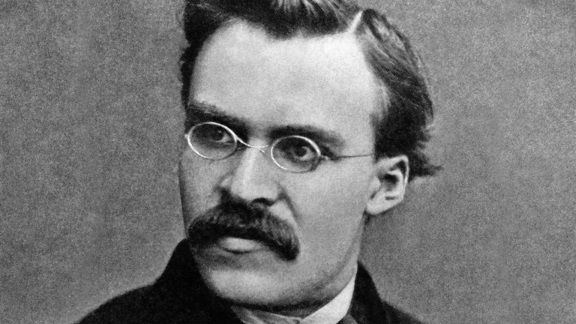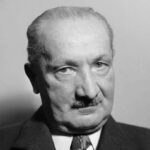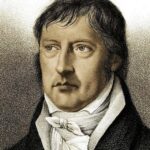Friedrich Nietzsche didn’t come to play nice. He came to question everything. God. Morality. Society. Even the meaning of truth itself. Armed with aphorisms and a hammer, Nietzsche shattered conventions and laid the groundwork for modern existentialism, postmodernism, and critical theory.
Often misunderstood and frequently misquoted, Nietzsche remains one of the most provocative thinkers in the Western canon. His writing style – poetic, aphoristic, and incendiary – was as revolutionary as his ideas. He was not interested in developing a rigid system of thought; instead, he aimed to awaken. Nietzsche saw philosophy as a personal act, an existential mirror held up to life itself.
In this article, we’ll explore Nietzsche’s boldest ideas, the cultural waves he inspired, and why he remains one of the most powerful – and controversial – thinkers in modern history.
Nietzsche’s World – Upbringing and Intellectual Rebellion
Born in 1844 in Röcken, Prussia, Nietzsche was a brilliant student and the youngest-ever chair of classical philology at the University of Basel. But by his mid-thirties, poor health had forced him into early retirement, and he dedicated the rest of his life to writing radical, genre-defying philosophy.
Raised in a religious household, Nietzsche was initially destined to become a Lutheran minister. But academic exposure to Greek tragedy, science, and the works of Schopenhauer challenged those early convictions. His disillusionment with traditional morality, religion, and culture would shape his life’s work.
Unlike Kant, who sought universal rules, Nietzsche embraced contradiction and challenge. He wrote like a poet, thought like a psychologist, and critiqued like a provocateur. His style alone-fragmented, aphoristic, emotional-dismantled the dry academicism that dominated philosophy.
God Is Dead – A Wake-Up Call, Not a Celebration
Perhaps Nietzsche’s most infamous phrase – “God is dead” – appears in The Gay Science and Thus Spoke Zarathustra. But he didn’t mean it triumphantly. Rather, it was a lament for the erosion of shared moral foundations in a secularizing world.
Nietzsche warned that without religion’s scaffolding, Western civilization risked falling into nihilism-the belief that life lacks inherent meaning or value. He viewed the “death of God” not as a cause for celebration, but as a spiritual crisis.
With traditional religion fading, Nietzsche feared that people would either retreat into despair or blindly follow new dogmas, whether political, ideological, or scientific. His challenge was simple yet profound: if God is dead, what will we put in His place?
The Will to Power and the Übermensch
Nietzsche believed that life is driven not by reason, but by a fundamental will to power – a striving for mastery, growth, and creative expression. This drive isn’t simply about domination; it’s about overcoming-transforming struggle into strength.
Enter the Übermensch, or “overman”- Nietzsche’s model for human potential. Often misunderstood as a call for elitism or superiority, the Übermensch is instead someone who creates their own values in a world without absolutes. The Übermensch lives authentically, embraces suffering, and turns chaos into creative force.
Nietzsche wrote: “He who has a why to live can bear almost any how.”
Beyond Good and Evil – Rethinking Morality
In works like Beyond Good and Evil and On the Genealogy of Morals, Nietzsche dismantled traditional morality. He traced concepts like guilt, sin, and virtue to power struggles and psychological impulses rather than divine or rational truth.
He identified two moralities:
-
Master morality – arising from strength, pride, and nobility
-
Slave morality – arising from resentment, weakness, and the inversion of values
Nietzsche believed Western morality had been dominated by the latter, which he saw as life-denying and repressive. His goal was to replace it with a more affirmative, life-loving ethic grounded in personal excellence.
The Eternal Recurrence – A Test of Life’s Worth
What if you had to live your life over and over again, exactly as it is, for eternity? That’s Nietzsche’s thought experiment known as eternal recurrence.
He didn’t present this as a scientific theory but as an existential challenge: if your life isn’t worth repeating, is it worth living at all? The idea pushes us to embrace our existence fully, without excuses or wishful thinking.
It’s a radical call to live deliberately, to find meaning in every moment.
Nietzsche and Modern Culture
Nietzsche’s fingerprints are all over modern thought:
-
Existentialism (Sartre, Camus) owes him its central questions: freedom, responsibility, and authenticity
-
Psychoanalysis was shaped by his insights into repression, instinct, and inner conflict
-
Postmodernism (Foucault, Derrida) adopted his skepticism of truth, language, and power structures
-
Literature and Art – from Kafka and Thomas Mann to Wagner and the German Expressionists, Nietzsche’s influence runs deep
-
Popular culture echoes Nietzsche in films like Fight Club, The Matrix, and even superhero narratives where characters transcend good and evil
His language and metaphors – from the abyss to the tightrope walker – remain enduring symbols of the modern struggle for meaning.
Misinterpretations and Misuse
Nietzsche’s legacy is as controversial as his prose. His writings were famously twisted by Nazi propagandists, despite his clear opposition to nationalism, antisemitism, and mass conformity. Much of this distortion was due to the editing and politicizing of his unpublished writings by his sister, Elisabeth Förster-Nietzsche.
Today, scholars work to correct these myths. The real Nietzsche opposed authoritarianism, rejected groupthink, and celebrated individuality. He warned against the very ideological traps his name was later used to justify.
Criticisms and Challenges
Nietzsche’s rejection of system – building makes his work hard to pin down. Critics argue that his praise of power lacks ethical restraint, while others see his writings as dangerously open to abuse.
Still, his influence on ethical pluralism, hermeneutics, and cultural criticism cannot be overstated. His refusal to offer tidy answers is part of his power.
Friedrich Nietzsche didn’t offer a system. He offered a challenge. He asked us to break away from inherited beliefs and live deliberately, creatively, and with the courage to face life’s uncertainty.
He wasn’t interested in comfort. He was interested in truth – the kind that hurts before it heals. For Nietzsche, life was not a problem to be solved, but a performance to be lived to the fullest.
Continue exploring the giants of German thought: Immanuel Kant, Karl Marx, Georg Wilhelm Friedrich Hegel, Martin Heidegger, and Arthur Schopenhauer.
Related articles:
How German Philosophy Shaped the Modern World
Exploring the Depths of German Philosophy
Friedrich Nietzsche Quotes
Famous Germans: Icons Who Shaped the World








